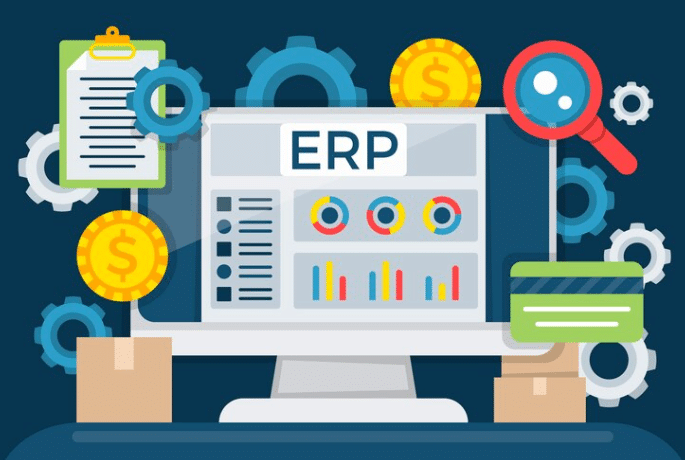news.metroandalas.co.id | MRP Software, which stands for Material Requirements Planning, is a critical component in the world of manufacturing. It refers to the comprehensive process of planning and managing the materials required for production efficiently. MRP is a technology-driven solution that aids businesses in automating and optimizing this complex process. Here, we’ll delve into what MRP is and how it works:
Material Requirements Planning (MRP)

MRP is a methodical approach used by manufacturing companies to determine the materials and components needed for the production of finished goods. It takes into account factors such as production schedules, inventory levels, lead times, and demand forecasts to ensure that materials are available when needed.
MRP Software Overview
MRP software is a specialized software system designed to facilitate the MRP process. It helps manufacturers plan, track, and manage their materials efficiently, ensuring that production runs smoothly and costs are minimized.
Key Functions of MRP Software
- Inventory Management:
MRP software keeps a detailed record of inventory levels, including raw materials and finished goods, helping manufacturers avoid overstocking or understocking issues. - Bill of Materials (BOM):
It maintains a database of product components and their relationships, allowing manufacturers to understand the structure of their products. - Production Planning:
MRP software generates production schedules based on demand forecasts, ensuring that manufacturing processes are aligned with market needs. - Materials Ordering:
It automates the procurement process by creating purchase orders for required materials and tracking their delivery. - Demand Forecasting:
MRP software uses historical data and market trends to predict future demand, helping businesses plan their production and material procurement accordingly.
How MRP Software Works
- The software starts by collecting data from various sources within the organization, including sales orders, inventory levels, and production schedules.
- It processes this data using algorithms and logic to calculate the precise quantities of materials required for upcoming production runs.
- MRP software generates reports and recommendations, indicating what needs to be ordered, when, and in what quantities.
- It can also consider lead times, safety stock levels, and supplier constraints to optimize the ordering process.
- Manufacturers can then use these recommendations to make informed decisions about materials procurement and production scheduling.
Benefits
- Efficiency:
MRP automates many time-consuming manual tasks, reducing errors and improving overall efficiency. - Cost Savings:
By optimizing inventory levels and reducing waste, manufacturers can save on holding costs and minimize production interruptions. - Improved Planning:
Accurate demand forecasts and production schedules help businesses meet customer demands on time and reduce lead times. - Enhanced Visibility:
MRP provides real-time visibility into inventory levels, production status, and materials availability, aiding decision-making.
In conclusion, MRP software plays a pivotal role in modern manufacturing by automating the complex task of material requirements planning. It streamlines processes, reduces costs, and helps manufacturers stay agile in a competitive market. By efficiently managing materials and production, MRP contributes significantly to the success of manufacturing businesses.
Implementation and Integration
Implementing MRP software involves several steps, including data collection, system configuration, and training of personnel. It’s crucial to integrate the MRP with other systems, such as accounting and procurement software, to ensure seamless data flow and accurate financial tracking.
Scalability
Many MRP solutions are scalable, which means they can adapt to the changing needs of a business. As a company grows, the software can accommodate increased production volumes and more complex operations.
Reporting and Analytics:
MRP provides robust reporting and analytics capabilities. Manufacturers can generate reports on inventory levels, production efficiency, and materials usage, allowing for data-driven decision-making and continuous process improvement.
Real-time Updates:
MRP operates in real-time, providing up-to-the-minute information on materials availability and production progress. This real-time data helps businesses respond quickly to changes in demand or supply chain disruptions.
Industry-specific Solutions
Some MRP software solutions are tailored to specific industries, such as automotive, aerospace, or food production. These industry-specific solutions often include features and modules designed to address unique manufacturing challenges.
Compliance and Traceability
MRP can assist in ensuring compliance with industry regulations and quality standards. It enables manufacturers to track the origin and usage of materials, supporting traceability and quality control efforts.
Supplier Relationship Management (SRM)
MRP software often includes SRM features, allowing businesses to manage their relationships with suppliers effectively. This can involve assessing supplier performance, negotiating contracts, and ensuring timely deliveries.
Collaboration and Communication
Collaboration tools within MRP facilitate communication between different departments and stakeholders involved in the manufacturing process. This helps in aligning everyone with production goals and requirements.
Cloud-based MRP Software
Many MRP software solutions are now available as cloud-based applications, offering the advantage of accessibility from anywhere with an internet connection. This can be particularly useful for businesses with multiple locations or remote teams.
Ongoing Support and Updates
MRP Software providers typically offer ongoing support and updates to keep the software current and address any issues that may arise during its use. Regular updates often include improvements in functionality and security.
In summary, MRP is a sophisticated tool that empowers manufacturers to effectively plan, manage, and optimize their material resources. It enhances efficiency, reduces costs, and improves the overall competitiveness of manufacturing businesses in today’s dynamic marketplace. As technology continues to advance, MRP will likely play an increasingly vital role in shaping the future of manufacturing.